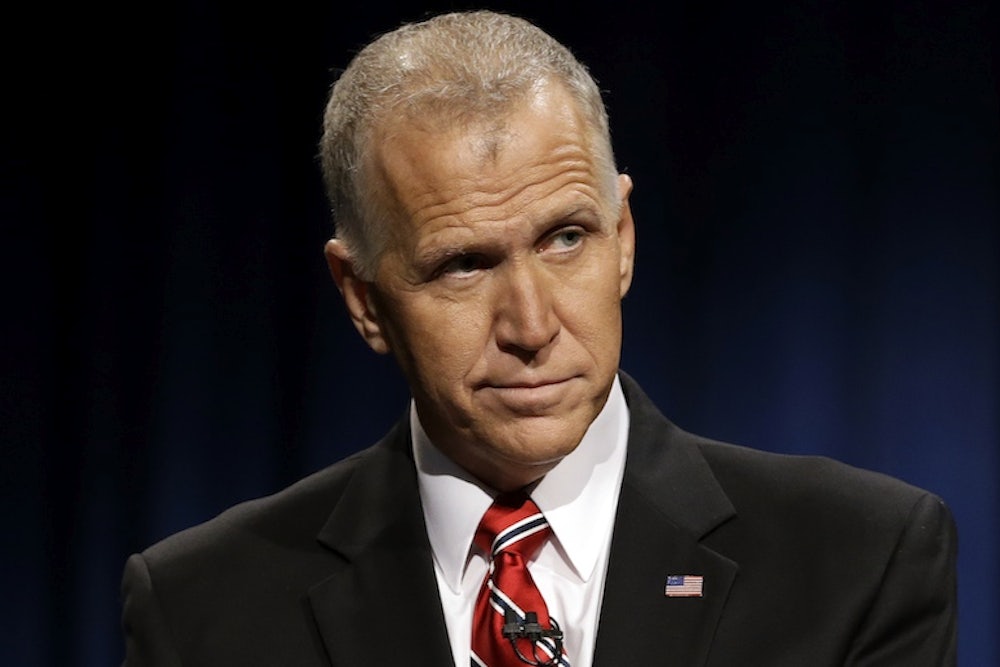When the North Carolina State Assembly set out to pass a resolution in 2007 expressing the body’s regret for its participation in the institution of slavery, conservatives objected on the grounds that black North Carolinians would use it to advance the cause of reparations.
Republican Assemblyman Thom Tillis, who is now challenging Democrat Kay Hagan for her U.S. Senate seat, sought to allay those conservatives' concerns by flipping the argument. Reparations already exist in the form of welfare programs, he noted, and Republicans would be better positioned to oppose them if they purchased some goodwill with conservative Democrats by acknowledging that the legacy of slavery isn’t just a liberal fiction.
TPM dug up Tillis’ old statement explaining his vote. Here’s the key nugget.
A subset of the democrat [sic] majority has never ceased to propose legislation that is de facto reparations and they will continue to do so as long as they are in the majority. Federal and State governments have redistributed trillions of dollars of wealth over the years by funding programs that are at least in part driven by their belief that we should provide additional reparations. I believe there are several conservative democrats who are prepared join Republicans in OPPOSITION to measures that propose new entitlements and reparations. However, a vote against the resolution would most likely eliminate any chance that we would to get support from more conservative members of the democrat [sic] party members to oppose such measures.
Tillis voted the right way, for the wrong reasons. And in so doing he surfaced his actual belief about social spending programs, which he’s discussed in other venues using barely submerged grievances.
On the eve of North Carolina's GOP primary in May, I called back to this 2011 footage of Tillis explaining his racially charged strategy to dismantle anti-poverty programs.
What we have to do is find a way to divide and conquer the people who are on assistance. We have to show respect for that woman who has cerebral palsy and had no choice in her condition, that needs help and that we should help. And we need to get those folks to look down at these people who choose to get into a condition that makes them dependent on the government and say, 'at some point you're on your own! We may end up taking care of those babies, but we're not taking care of you.' And we've got to start having that serious discussion. It won't happen next year. Wrong time. Because it's going to be politically charged. One of the reasons why I may never run for another elected office is cause some of these things may just get me railroaded out of town. But in 2013 I honestly believe that we have to do it.
The only thing missing from this exegesis is an explicit reference to racial minorities, reparations, and so on. But the subtext is pretty clear. And when you read it in light of his comments about the slavery resolution, it becomes painfully obvious who in Tillis's mind deserves government assistance and who needs to be conquered.
This post has been updated.
